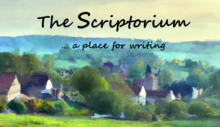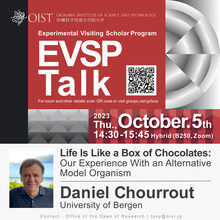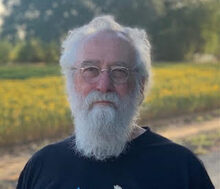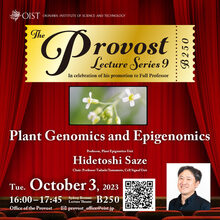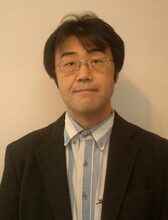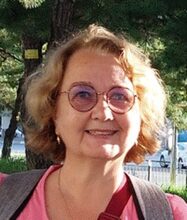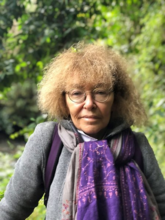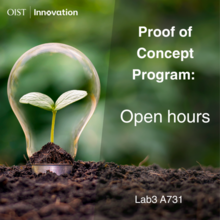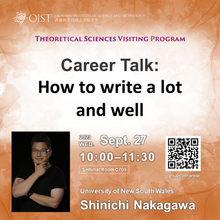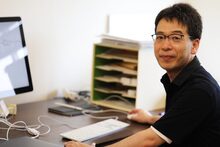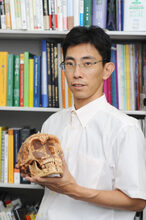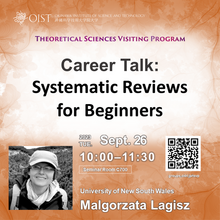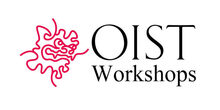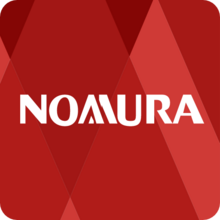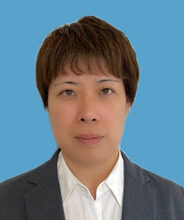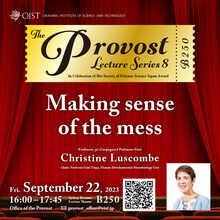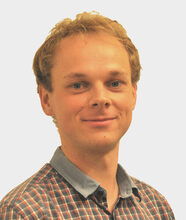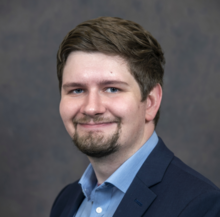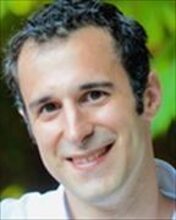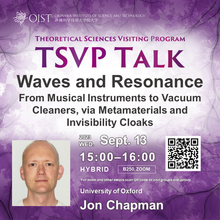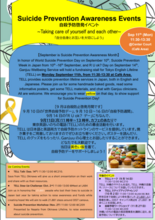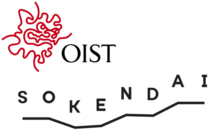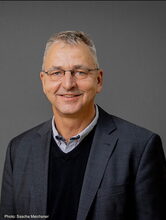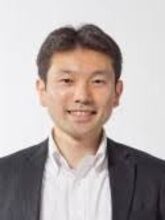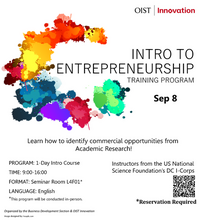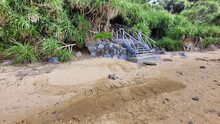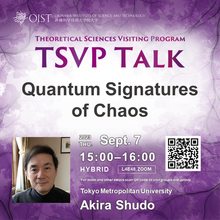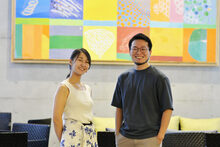Past Events
Scriptorium
Guest Speaker Prof Tom Froese
"Papers, Grants, and Writing"
EVSP Talk: "Life Is Like a Box of Chocolates: our experience with an alternative model organism" by Daniel Chourrout
Our knowledge of modern biology is based on the study of just a handful of species, which, due to technological investments that have been made, have become increasingly unavoidable. Neglecting, sometimes forgetting, almost all other life forms has been a consequence of this. The problem seems insoluble, but new scientific disciplines fortunately required moving beyond classic laboratory species. One of them is evo-devo, a fairly recent combination of two traditional disciplines, evolutionary biology and developmental biology. Questions on the evolution of animal development led several of us to choose Oikopleura dioica, a species little known to the general public but of considerable importance in marine ecosystems. The first results were a little shocking, but that was not the end of our surprises…
#2 Study Session for Administrative Staff (English): Research Areas of Science and Technology
#2 Study Sessions for Administrative Staff (English) : Research Areas of Science and Technology
Speaker: Mizuki Shimanuki, Provost Office. Facilitator: Ayumi Nagai, C-Hub
Quantum Gravity unit visitor seminar: Higher Spin Gravity I: A New Paradigm for Relativistic Quantum Fields
Visitor seminar hosted by Quantum Gravity Unit
Speaker: Prof. Per Sundell, Andres Bello Natl. U.
Title: Higher Spin Gravity I: A New Paradigm for Relativistic Quantum Fields
Seminars on organic and perovskite optoelectronics
Seminars on organic and perovskite optoelectronics. Registration is NOT requried.
[Seminar] "Why is Wolbachia-induced cytoplasmic incompatibility so common?" by Michael Turelli
Professor Turelli will discuss his fascinating work on Wolbachia, an intracellular bacteria that infects arthropods and develops an amazing diversity of interactions with its various host species.
Wednesdays Morning Yoga with Yasuko
This class is being offered for OIST members only
Please register in advance
The Provost Lecture Series 9
Seminar: "Mathematical Models Describing Evolutionary Immune Escapes of Pathogens" by Prof. Akira Sasaki (SOKENDAI)
Seminar by Prof. Akira Sasaki (Sokendai). All are welcome to attend.
TSVP Seminar: "An overview of Transseries" by Ines Aniceto
Discussion seminar, 2pm in L5EF06
【Seminar】“High-resolution structures of viruses and their proteins obtained by cryo-EM”
【Seminar】
“High-resolution structures of viruses and their proteins obtained by cryo-EM”
Speaker: Dr. Andrei Moiseenko, Professor Olga Sokolova
Moscow Lomonosov State University
TELL Step Up Challenge ・TELLステップアップチャレンジ
Oct. 2nd (Mon) 11:00-13:00 @Meet at Lab 4 entrance at 11:00
10月2日(月)11:00-13:00 @LAB4入り口に11時集合
Join us in taking action to raise awareness while creating hope. As we remember 21,881 people who lost their lives to suicide last year in Japan, we aim to walk 21,881 steps around the OIST campus.
However, walking isn’t the only option. Whether you’re cycling, swimming, dancing or meditating for 21,881 seconds – whatever you choose to do, it all matters and all are welcome! If you would like your steps/ seconds to be counted, please email Ganjuu so we may collate all our efforts together!
You can register for TELL Step Up Challenge via their website. There is a ¥1,500 sign-up fee, however this is not required to participate. ( https://www.tellevents.org/events/step-up-2023 ) The campaign aims to raise awareness of mental health issues.
去年、自殺で亡くなった21881名の命を覚え、自殺防止の支援と理解の拡充のため、 OIST のキャンパス内を21881歩、歩くことを目指します。
しかし、歩くこと以外にも、サイクリングや水泳、ダンス、21,881秒の瞑想など、どんなことでも大歓迎です。歩数や秒数のカウントをしてほしい方は、Ganjuuまでメールでご連絡ください。TELL のウェブサイトから登録することも可能ですが ( https://www.tellevents.org/events/step-up-2023 ) 1500 円の参加費がかかりますので、必須ではありません。
このキャンペーンは、メンタルヘルスに対する意識改革を促すことを目的としております。
Special Talk - "How the notion of harassment emerged in modern societies" by Dr. CLAUDINE HAROCHE
According to the philosophers of the Enlightenment, it is a moral duty to recognize others as equals worth of respect and recognition. Jean-Jacques Rousseau in the Discourse on the origins of inequality and Adam Smith in the Treatise of moral feelings have analyzed the social inequalities and forms of domination which have persisted over the centuries and are still expressed by various kinds of unrespectful and violent behaviors. Sexual harassment whose victims are mostly women is the most conspicuous, but moral bullying, especially in the work place has also emerged as an explicit issue in modern societies, which needs to be seriously dealt with. The respect owed to anyone is not only a matter of moral duty. It has become a right inscribed in laws protecting the potential victims of all kind of harassment. Transforming a moral precept into a legal right is certainly a social progress. It raises however issues which will be discussed in the talk.
IMG Users group meeting
Scientific Imaging Section (IMG) User's group meeting
TSVP Seminar: "Donaldson-Thomas theory for quivers with potential" by Nick Williams
Discussion seminar, 2pm in L5EF06
[Seminar] MLDS Seminar2023-8 by Ms. ABEMGNIGNI NJIFON Marianne (Institute of Mathematical Stochastics of the University of Goettingen), Ms. Naghmeh Jamali (Islamic Azad University), Seminar Room L5D23
Speaker 1: Ms. ABEMGNIGNI NJIFON Marianne (Institute of Mathematical Stochastics of the University of Goettingen)
Title: Graph Convolution Networks for spatial interpolation of correlated data
Speaker 2: Ms. Naghmeh Jamali (Islamic Azad University)
Title: Trustworthy Textual models: Are the textual models robust against various backdoor attacks
Lecture by Prof. Serge Haroche "Quantum Science with Rydberg Atoms"
We are happy to invite you to a lecture by Prof. Serge Haroche . This is a part of our summer school CQD2023, and he will give a talk on Quantum Science with Rydberg Atoms. Target audience: OIST community
POC Program Open Hours
We have biweekly open hours at OIST Innovation where you can come and talk with us about anything related to the Proof of Concept application process.
Career Talk: "How to write a lot and well" by Shinichi Nakagawa
My research group has consistently published ~20 papers per year for 15 years, and most of these papers were published in the top 25% of journals (CiteScores) with an average citation of > 100. How did we manage to do this? There are several reasons. In this interactive talk session, I will share one core secret: how to write a lot and well. If you can do it, you are invincible in academia or elsewhere. But how do you do this? You should consider writing a review to transform you into an amazing writer.
Seminar: "Indirect reciprocity under private observation" by Prof. Hisashi Ohtsuki (SOKENDAI)
Seminar by Prof. Hisashi Ohtsuki, SOKENDAI. All are welcome to attend.
TSVP Seminar: "The BPS Riemann-Hilbert problem" by Omar Kidwai
Discussion seminar, 2pm in L5EF06
Seminar: "Genealogies and ages of cultural traits: An application of the theory of duality to the research on cultural evolution" by Prof. Joe Yuichi Wakano (Meiji University)
Seminar by Prof. Joe Yuichiro Wakano, Meiji University. All are welcome to attend.
Career Talk: "Systematic Reviews for Beginners" by Malgorzata Lagisz
This interactive workshop is intended for those starting or considering a systematic review-like project. I will provide a quick overview of the systematic review process. The focus will be on the most common traps you may encounter and ways to avoid them. The interactive presentation will be followed by a Q&A session. For example, you may want to ask: "What are the types of reviews and what are they good for?", "What is a great topic for a systematic-like review?", "How long will it take?" etc.
Okinawa School in Physics 2023: Coherent Quantum Dynamics (CQD)
OIST Workshop | Website | Main organizer: Thomas Busch (Quantum Systems Unit) | OIST members are welcome to attend all scientific sessions (registration required).
Seminar: Venture Finance for Future Entrepreneurs
Join us for an enlightening seminar led by the Frontier Research and Venture Support teams at Nomura Securities, one of Japan’s largest and most prominent financial services companies.
[Seminar] "Single-cell RNAseq approaches of shell-bearing foraminifers provide new insights into understanding marine ecology and evolution" by Prof. Yurika Ujiie
Dr. Yurika Ujiie, Marine Core Research Institute, Kochi University.
The Provost Lecture Series 8
[Seminar] "Successor Features Representations: Human-inspired Transfer Reinforcement Learning and its Application to Social Robotics" by Dr. Chris Reinke
Speaker: Dr. Chris Reinke Inria Grenoble
Title: Successor Features Representations: Human-inspired Transfer Reinforcement Learning and its Application to Social Robotics
[Seminar] MLDS Seminar-7 by Dr. Deborah Sulem (Barcelona School of Economics-UPF), Solaleh Mohammadi (Sharif University of Techonology), Seminar Room L5D23
Speaker 1: Dr. Deborah Sulem, Postdoctoral Scholar, Barcelona School of Economics- Universitat Pompeu Febra
Title: Scalable and adaptive variational Bayes methods for Hawkes processes
Speaker 2: Ms. Solaleh Mohammadi, PhD Student, Sharif University of Techonology
Title: Semantic backdoor attacks
Japanese Calligraphy (Shodo) Workshop* Filled to Capacity
The instructor will write your name down in Chinese characters.
*Please apply to this workshop ASAP, Due to I need to share your name ( Name Only ) with the instructor in advance to fit Chinese Characters with your name.
Seminar"Molecular Scale Properties of Complex Molecules from Bulk, Microscale, and Scattering Measurements"Matthew A. Wade
Language: English
RoBoRoBo Summer Camp 2023
This is an externally organized event. Please contact the organizers directly for further details. Website: https://sites.google.com/view/roborobo-summer-camp/home
[Seminar] "Horizontal mean curvature flow: a Riemannian approximation" by Prof. Federica Dragoni
Speaker: Prof. Federica Dragoni (Cardiff University)
Title: Horizontal mean curvature flow: a Riemannian approximation
[Seminar] MLDS Seminar 2023-6 by Parsa Hosseini (Sharif University of Technology), Laura Sudupe Medinilla (KAUST), Seminar Room L5D23
Speaker 1: Mr. Parsa Hosseini, B.S. student, Sharif University of Technology
Title: Mitigating Spurious Correlation in Images by Intervention
Speaker 2: Ms. Laura Sudupe Medinilla, Ph.D. Student, King Abdullah University of Science and Technology
Title: Spatial profiling in translational research
TELL Intro Talk
TELL Intro Talk
September 14th, Thursday 11:30-12:00 @C210
TELL’s half-century of experience has made us acutely aware of the challenges in adequately addressing mental healthcare needs within our international community. Our General TELL Talk is an interactive, 20-minute presentation that covers facts about mental health topics in Japan, including stress, depression, and suicide prevention. The presentation illustrates how TELL is tackling these mental health concerns by introducing the three pillars of our organization: Outreach, Counseling, and our Lifeline. The talk ends with group mindfulness or breathing exercise.
TELL is a nonprofit organization dedicated to providing world-class, effective support and counseling services to Japan’s international community as well as helping to address the country’s growing mental health care needs.
TELL Outreach provides folders or pens and wallet cards with our Lifeline phone number and website, as well as our pledge of confidentiality. The TELL Intro Talk is presented by TELL in the Community.
TELLイントロトーク
9月14日(木)11:30-12:00 @C210
TELLは、半世紀にわたる経験から、国際社会におけるメンタルヘルスのニーズに適切に対応することの難しさを痛感しています。今回のTELLトークは、ストレス、うつ病、自殺予防など、日本におけるメンタルヘルスのトピックについて、対話形式で20分間のプレゼンテーションを行います。プレゼンテーションでは、TELLの3つの柱を紹介しながら、TELLがどのようにこれらのメンタルヘルス問題に取り組んでいるかを説明します: アウトリーチ、カウンセリング、そしてライフラインです。講演の最後には、グループでのマインドフルネスや呼吸法が紹介さ れます。
TELLは、日本のインターナショナル・コミュニティに世界レベルの効果的なサポートとカウンセリング・サービスを提供し、日本のメンタルヘルス・ケアのニーズの高まりに貢献することを目的とした非営利団体です。
TELLアウトリーチでは、ライフラインの電話番号とウェブサイト、秘密保持の誓約を記載したフォルダーやペン、ウォレットカードを配布しています。TELLイントロ・トークは、TELL in the Communityによって開催されます。
[ONOS Seminar Series] Professor. Michael Economo: Linking transcriptomics, connectomics, and circuit function in the mouse motor system
[ONOS Seminar Series] Professor. Michael Economo: Linking transcriptomics, connectomics, and circuit function in the mouse motor system
TSVP Talk: "Waves and Resonance: From Musical Instruments to Invisibility Cloaks" by Jon Chapman
TSVP Talk Language: English (no interpretation). Target audience: General audience / everyone at OIST and beyond. Freely accessible to all OIST members and guests without registration (also via Zoom).
#1 Study Sessions for Administrative Staff (English) : Activities of Researchers
#1 Study Sessions for Administrative Staff (English) : Activities of Researchers
Speaker: Mizuki Shimanuki, Provost Office. Facilitator: Ayumi Nagai, C-Hub
Suicide Prevention Awareness Events 自殺予防啓発イベント ~Taking care of yourself and each other~ 「自分自身とお互いを大切にしよう」
【September is Suicide Prevention Awareness Month】
In honor of World Suicide Prevention Day on September 10th , Suicide Prevention Week in Japan from 10th -16th September, and R U ok? Day on September 14th , Ganjuu Wellbeing Service will hold a fundraising stall for Tokyo English Lifeline (TELL) on Monday September 11th, from 11:30-13:30 at Café Area . TELL provides suicide prevention lifeline services in Japan, both in English and Japanese. Please join us for some handmade baked goods, read some informative posters, get some TELL materials, and chat with Ganjuu clinicians. All are welcome. We encourage you to wear yellow on that day, to show support for Suicide Prevention Day!
[9 月は自殺防止啓発月間です]
9 月 10 日の「世界自殺予防デー」、9 月 10 日~16 日の「自殺予防週間」、 9月 14 日の「R U ok? デー」にちなんで、 9月11日(月) 11 時半~ 13 時半、カフェのあたり で 東京英語いのちの電話(TELL)のための募金活動を行います。 TELL は日本語と英語両方で自殺予防ホットラインのサービスを提供しています。焼 き菓子をご用意しておりますのでぜひお立ち寄りください。ポスターを読んだり、 TELL のグッズをもらったり、Ganjuu の心理士とお話したりすることができます。 どなたでも大歓迎です。 当日は黄色い服を着て、 自殺予防デーをサポートしましょう!
Up Coming Events
⚫ TELL Talk (Sep. 14th) 11:30-12:00 @C210. Saya from TELL Okinawa will give us a short presentation on their work and share with us their resources.
⚫ TELL Step Up Challenge (Oct. 2nd) 11:00-13:00 @Meet at LAB4 Join us in honoring the 21,881 people who lost their lives to suicide in Japan last year by taking action to raise awareness and funds while creating hope! We will aim to walk 21,881 steps around OIST campus.
⚫ Suicide Prevention Workshop (Nov. 27) 11:00-12:00 @C209 Presented by Nagata from Okinawa Lifeline, to raise awareness about suicide prevention.
今後のイベント
⚫ TELL トーク (9 月 14 日) 11:30-12:00 @C210 TELL 沖縄のサヤさんを迎え、TELL 沖縄の活動 や、リソースについてお話していただきます。
⚫ TELL ステップアップチャレンジ (10 月 2 日) 11:00-13:00 @LAB4 前に集合 昨年日本で自殺により命を落とした 21,881 人に 敬意を表し、OIST キャンパス周辺を 21,881 歩 歩くことを目指します。
⚫ 自殺予防ワークショップ (11 月 27 日) 11:00-12:00 @C209 沖縄いのちの電話の長田理事長を講師に迎え、自 殺予防について学びます
Images
Academic Career Seminar with SOKENDAI
Our presenter Dr. Hie Lim Kim and Dr. Gouki Okazawa will discuss how to build a career in global Academia. Since Dr. Kim completed her Ph.D. at SOKENDAI, she has developed her career in U.S. and then Singapore. Dr. Okazawa also completer his Ph.D. at SOKENDAI in 2013, he worked as postdoc at New York University and then is currently a PI in China. They will show how to develop a personal career blueprint and devise contingency plans. Their talks include selection process they experienced in each country. You will learn how early-career scientists can best prepare for success in a career. OIST(Okinawa Institute of Science and Technology Graduate University) students will join in lecture and then breakout session for interaction with SOKENDAI students.
[Seminar] "Enzyme Discovery & Engineering to Create Suitable Biocatalysts" by Prof. Uwe Bornscheuer
Prof. Uwe T. Bornscheuer, Institute of Biochemistry, Dept. of Biotechnology & Enzyme Catalysis, University of Greifswald, Greifswald, Germany
【Seminar】On the minimal order of knots and the twisted Alexander polynomial
Speaker: Prof. Masaaki Suzuki, Meiji Univetrsity
https://gyoseki1.mind.meiji.ac.jp/mjuhp/KgApp?kyoinId=ymdeygyeggy (Data base from Meiji Univ.)
Intro to Entrepreneurship Training Program
This 1-day introductory session in innovation and entrepreneurship will introduce participants to the concepts and principles of Lean Startup, Business Model components, Customer Development, and Evidence-based Entrepreneurship. The class will be suited for a wide range of students and researchers with an interest in learning more about technology commercialization and entrepreneurial opportunities at OIST and beyond.
Apply @ https://groups.oist.jp/innovation/intro-entrepreneurial-training-program
Uke Club Meeting - Seaside Lounge
Due to a surplus of driftwood, uke club will be indoors this week.
[Seminar] "Several topics on the linear transport equation" by Prof. Kohei Soga
Speaker: Prof. Kohei Soga (Keio University)
Title: Several topics on the linear transport equation
[Seminar] "Behavior of solutions to systems related to Keller-Segel system" by Prof. Takasi Senba
Speaker: Prof. Takasi Senba (Fukuoka University)
Title: Behavior of solutions to systems related to Keller-Segel system
TSVP Talk: "Quantum Signatures of Chaos" by Akira Shudo
TSVP Talk Language: English (no interpretation). Target audience: General audience / everyone at OIST and beyond. Freely accessible to all OIST members and guests without registration (also via Zoom).
OIST NetCafé Online Information Session in September 2023
OIST Café is a casual science information session to introduce the OIST PhD program, Research Internship, and other workshops. What do cutting-edge research and education look like? What are the qualification and criteria to get into Graduate School? What are the career options after the graduation? OIST members such as PhD students and admissions officers will meet you to answer all your questions!




